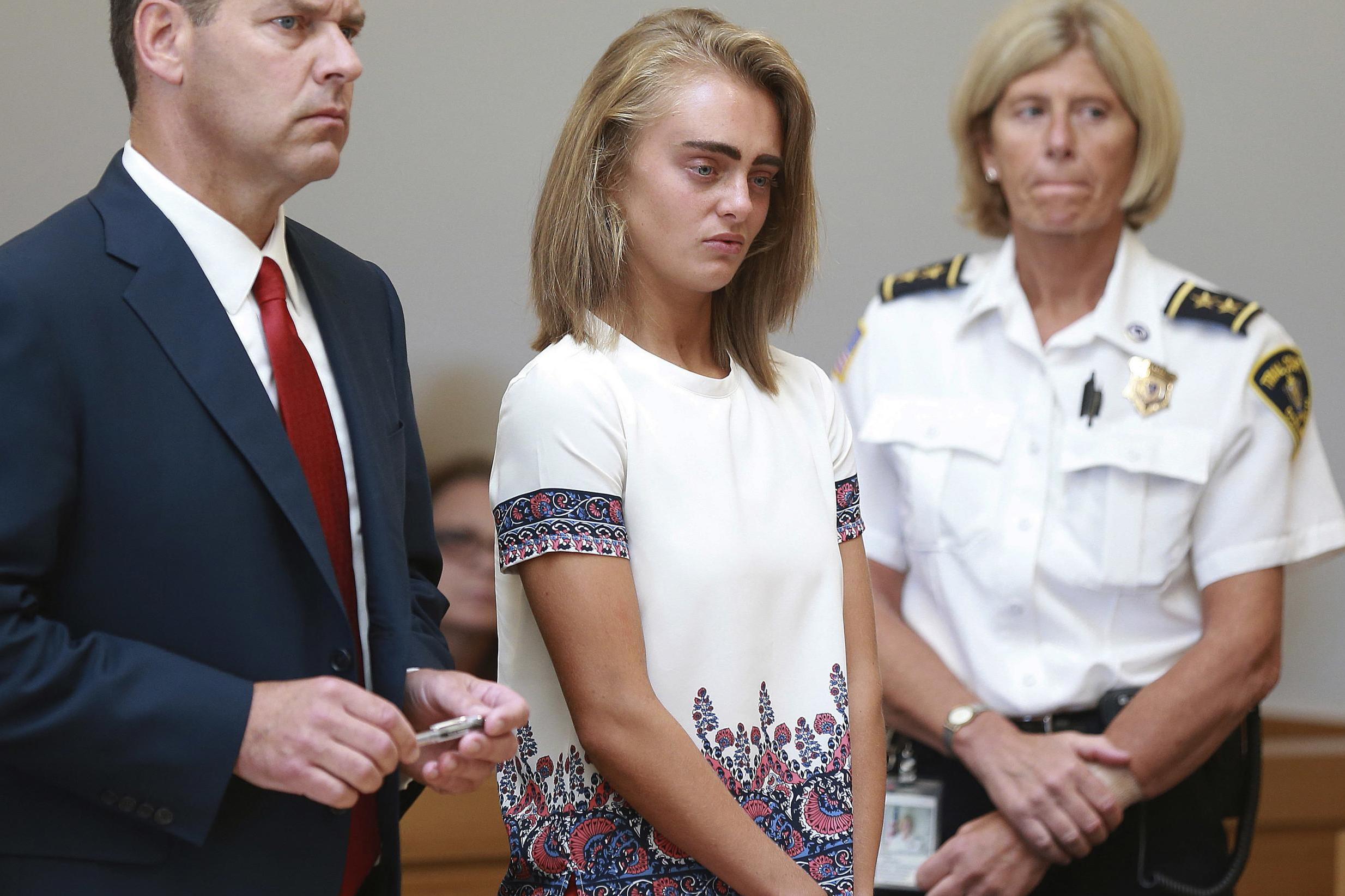The Girl from Plainville: What is the true story behind the Michelle Carter case?
Ellie Fanning drama recounts notorious ‘texting-suicide’ trial that shocked America
A new Hulu drama, The Girl from Plainville starring Elle Fanning, tells the horrifying story of Michelle Carter, the American teen convicted of involuntary manslaughter for goading her boyfriend, Conrad Roy III, into taking his own life.
Roy and Carter were both from Massachusetts and had first met when they were on family holidays visiting relatives in Naples, Florida, in February 2012, aged 16 and 15 respectively.
Despite living only 35 miles apart in their home state, he in coastal Mattapoisett and she in Plainville, they rarely saw each other in person again but continued an intense relationship through texts and Facebook exchanges.
Both teenagers had histories of mental illness: Roy suffered from social anxiety and depression, had been prescribed psychiatric medication and had claimed, according to court documents, to have been physically and verbally abused by his grandfather and father, with whom he worked in their marine salvage business.
Carter meanwhile had suffered from anorexia as a child, had likewise been placed on medication and attended counselling sessions at McLean Hospital in Belmont.
Roy unsuccessfully attempted suicide in October 2012, apparently in response to his parents’ divorce, and Carter was, reportedly, initially sympathetic and encouraged him to seek further professional help.
But as their remote relationship progressed, she appears to have changed her mind and the pair had talked openly about the prospect of ending their own lives, with Roy texting Carter in June 2014 comparing their situation to that of Shakespeare’s Romeo and Juliet.
In the weeks prior to his death, Roy did continue to see a succession of therapists and counsellors and had been prescribed the antidepressant citalopram, sold under the brand name Celexa, which carries a warning on its box stating that it can inspire an increase in suicidal thinking in under-24s.
On 13 July 2014, Conrad Roy III, 18, was found dead in his truck in the parking lot of a Kmart store in Fairhaven, Massachusetts, having suffocated himself with carbon monoxide fumes.
A police investigation into his death uncovered a trove of messages Carter had sent him in which she appeared to coerce him into suicide.
“Why don’t you just drink bleach?” read one of her messages.
“You’re just making it harder on yourself by pushing it off, you just have to do it,” said another.
It also emerged that he had been on the phone to her from his truck for several hours before he finally lost consciousness.
Michelle Carter was indicted on 4 February 2015 (as a “youthful offender” so that she could be tried as an adult despite being 17 at the time) on charges of involuntary manslaughter.
The case was heard two years later by Judge Lawrence Moniz of the Bristol County Juvenile Court of Massachusetts in Taunton, who found Carter guilty on 16 June 2017.
Judge Moniz explained that, rather than the texts, it was her final phone call with Roy – in which she had ordered him to return to the gas-filled vehicle after he briefly escaped into the parking lot for fresh air, rather than encouraged him to cry for help – that had broken the “chain of self-causation” and ultimately caused his death.
On 3 August 2017, Judge Moniz sentenced Carter to serve a two-and-a-half-year jail term, with 15 months to be served in the Bristol County House of Corrections, the rest of the balance suspended and five years of probation to follow.

Her lawyers asked the judge to issue a stay of the sentence until all her appeals options were exhausted. He assented.
On 6 February 2019, the Massachusetts Supreme Judicial Court ruled that Carter had acted with criminal intent, so the involuntary manslaughter conviction stood and she was jailed for 15 months. The rest of her sentence was suspended, followed by five years of probation.
She was released on 23 January 2020, three months early, for good behaviour.
If you are experiencing feelings of distress and isolation, or are struggling to cope, The Samaritans offers support; you can speak to someone for free over the phone, in confidence, on 116 123 (UK and ROI), email jo@samaritans.org, or visit the Samaritans website to find details of your nearest branch.
If you are based in the USA, and you or someone you know needs mental health assistance right now, call National Suicide Prevention Helpline on 1-800-273-TALK (8255). The Helpline is a free, confidential crisis hotline that is available to everyone 24 hours a day, seven days a week.
If you are in another country, you can go to www.befrienders.org to find a helpline near you.




